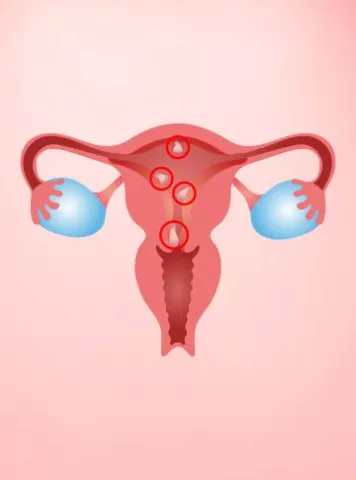World DS Vaccine Day is observed every year on the 18th of May to create awareness about HIV and DS illness. We say ‘Prevention is better than cure’ but the truth is, there IS NO CURE! Read this comprehensive article to know about HIV and DS symptoms and what you can do to manage them.
Meaning of HIV
HIV stands for Human Immunodeficiency Virus which is a sexually transmitted infection. HIV is a virus that impacts the CD4 or T-helper class of white blood cells in the body. White blood cells are important to keep the body immune from severe infections or diseases like cancer. A person affected by HIV will slowly become more prone to extreme bacterial-attack and viruses, and their health will suffer eventually. When HIV is not managed at its early stages, it can multiply inside the body and affect the DNA of more and more CD4 or T-helper cells.
Meaning of DS
If CD4 cells in the body are less than 200 per cubic millilitre of blood, then, the person is diagnosed with DS (Acquired Immunodeficiency Syndrome). Untreated HIV can lead to DS. Acquired Immunodeficiency Syndrome is a stage where HIV has progressed to extreme conditions and the patient’s immunity (disease-fighting capacity) has significantly deteriorated. When HIV progresses to its last stages, it can turn fatal.
What is the difference between HIV and DS?
To put it in simple words, untreated HIV leads to DS. HIV is a sexually transmitted infection – a type of virus that enters the body to create multiple copies of itself and kills the white blood cells. And the result is a weakened immune system.
DS can be understood as a condition of the body when it has contracted several illnesses, diseases, and infections due to its poor immunity. DS is a syndrome of extreme HIV progression. Not everyone with HIV will develop DS, provided there is timely medical intervention.
Symptoms of HIV
In the above paragraph, we understood the importance of preventing and treating HIV at its early stages. Though there is no cure for HIV, stopping it from spreading can save us from passing it to our children, other reproductive health problems, and DS.
Here are some HIV symptoms that you must be aware of –
- Inflammation of the lymph nodes
- Tiredness and fatigue
- Pain in body muscles
- Sore throat, chills, fever, and night sweats
- Ulcers or soreness in the throat
- Others.
If you notice these symptoms in a short while after engaging in unprotected sexual intercourse, or if you think you are at a higher risk and exposure to HIV, then contact your doctor immediately. HIV pregnancy can also lead to many risks.
Symptoms of DS
The following are the symptoms of DS -
Based on your age, health conditions, and the kind of treatment you get, it is possible to slow down or prevent developing DS. It is not advised to further delay your treatment after noticing these symptoms –
- Nerve-related disorders
- Swelling near your anus, genitals, or mouth
- Severe tiredness and dizziness
- Swollen glands near the near, armpit, or groin region
- Sudden night sweats, repeated episodes of fever, diarrhoea (for over a week)
- Pneumonia
- Spots or rashes of pink, red, brown or purple colour seen around eyelids, mouth, nose, etc.
- Positive results in HIV tests
Impact of HIV and DS on fertility
The early symptoms of HIV are very similar to the common flu or virus. Hence, many a time the early symptoms of HIV go unnoticed and untreated. This can make it adverse with time. Apart from attacking your immune system, did you know that HIV can also impact your fertility?
Here is the effect of HIV on pregnancy -
- It can lead to an increased possibility of miscarriage or abortion.
- HIV can be the cause of higher fetal motility.
- The virus in the male body can decrease sperm production.
- As HIV can be transmitted through semen or vaginal fluid, it can become a reason to avoid sexual intercourse, in which case, there are no chances of pregnancy.
HIV during Pregnancy
HIV and pregnancy together can turn very serious. Hence, it is vital to detect the virus in your body at its initial stage and through medications lower your chances of transmitting it to your child. Along with the blood, semen, and vaginal liquid of an infected person, breastmilk is also a carrier of HIV.
Causes of HIV in pregnancy can be having sexual intercourse with an infected person, sharing needles, transferring blood from an HIV-infected donor, etc.
To-be mothers who are HIV carriers need to take additional precautions because the infant can be affected by this condition before birth (during pregnancy as the infection can pass from the placenta to the fetus), at birth (during delivery or labour), or at the time of breastfeeding.
If you have contracted HIV due to an infected partner and have conceived eventually, then it may take about 2 to 4 weeks for your symptoms to surface. The symptoms of HIV in pregnancy can be very similar to the ones discussed above. But, you must not confuse them as indicators of pregnancy. Even at the slightest suspicion of contracting the virus, one must visit their healthcare provider to undergo the necessary tests.
Symptoms of HIV in Infants
If your infant has contracted HIV, they may start showing symptoms like –
- Swelling in the lymph or salivary glands
- Yeast infections
- Being underweight and experiencing slower growth
- Sinus, infections in the ear and respiratory tract (upper)
- Diarrhea, etc.
Management of HIV in Pregnancy
Women must undergo compulsory prenatal testing to check for HIV DS in pregnancy. Some of the common tests for HIV include Antigen tests, Antibody tests, Nucleic Acid tests, etc. Preventive drugs and constant monitoring of your health are also needed to track the spread of infection.
1st Screening – The first screening for HIV should be done along with other regular tests. If the tests come out positive, the treatment should be started immediately.
(Antiretroviral Therapy – ART is an effective medication for HIV and does not affect pregnancy negatively in most people.)
2nd Screening – Another screening may be required in the second trimester for women who are at a higher risk of contracting HIV. If you are tested positive at this stage, you will be prescribed medicines to reduce the chances of virus transmission.
Rapid HIV test – A rapid HIV test is for women who have skipped checking for HIV during their pregnancy term. This test is done when the pregnant woman goes into labour.
Tests for Children
Infants born to HIV-positive mothers should be immediately checked for the presence of the virus in their bodies. If it is detected, immediate treatment can increase their chances of being healthy and having a normal life expectancy.
Generally, newborns are prescribed virological testing for diagnosis. After around 18 months, a blood test for HIV can also be performed.
Infants are generally tested right at birth (in case of high HIV exposure risk), between 14 days to 21 days, at 1 to 2 months, and 4 to 6 months.
Treatment Options
The sad truth is that there is no vaccine or cure for HIV or DS yet. Once you are detected with this critical condition, you will be put on ART (Antiretroviral Therapy) to manage your symptoms and live your life as normal as possible. But, if you are an HIV patient, you can act responsibly by letting your partner know about your condition beforehand. Prevention of HIV in pregnancy or in general is possible by using protection during sexual intercourse. Nevertheless, there is an urgent need to find a cure and solution to this critical health problem which is why we observe World DS Vaccine Day.
As India’s largest fertility chain expert, Indira IVF tries its best to help infertile couples to start their parenthood journey easily. If you too are struggling to conceive due to any fertility issues due to HIV or other problems, book a free consultation with our doctors today and know your best treatment options. Call 18003092323 to get started.
Articles
2023


Male Infertility Infertility Tips
Hyperspermia: Causes, Symptoms, Diagnosis & Treatment
What is Hyperspermia? Hyperspermia is a condition where an individual produ...


Guide to infertility treatments Infertility Tips
पीआईडी: पेल्विक इनफ्लैमेटरी डिजीज और निःसंतानता
पीआईडी - पेल्विक इनफ्लैमेटरी �...
2022


Infertility Tips Uterine Fibroids
Endometrial Polyps (Uterine Polyps)
What are Endometrial Polyps (Uterine Polyps)? Endometrial polyps, often ref...
2022


Female Infertility Infertility Tips
Why do You Need Fertility Treatment
As we all know infertility rate is constantly rising in our society day by day...
2022


Cesarean Section Vs Natural Birth
Surrogacy centers in Delhi and Infertility centers in Pune state that there ar...
2022


ನಿಮಗೆ ಹುಟ್ಟಲಿರುವ ಮಗುವನ್ನು ಅರ್ಥಮಾಡಿಕೊಳ್ಳುವುದು: ಗರ್ಭದಲ್ಲಿ ಮಗು ಹೇಗೆ ಬೆಳೆಯುತ್ತದೆ!
ವೀರ್ಯವು ಮೊಟ್ಟೆಯನ್ನು ಭೇಟಿಮಾಡ�...
2022


Diet Chart for Pregnant Women: The Right Food for Moms-To-Be
Pregnancy Food Chart 1. The daily diet must include the right amount of pro...
2022


Can i become pregnant while my tubes are tied?
Pregnancy is one of the most important phases in women’s life and is conside...
Pregnancy Calculator Tools for Confident and Stress-Free Pregnancy Planning
Get quick understanding of your fertility cycle and accordingly make a schedule to track it














